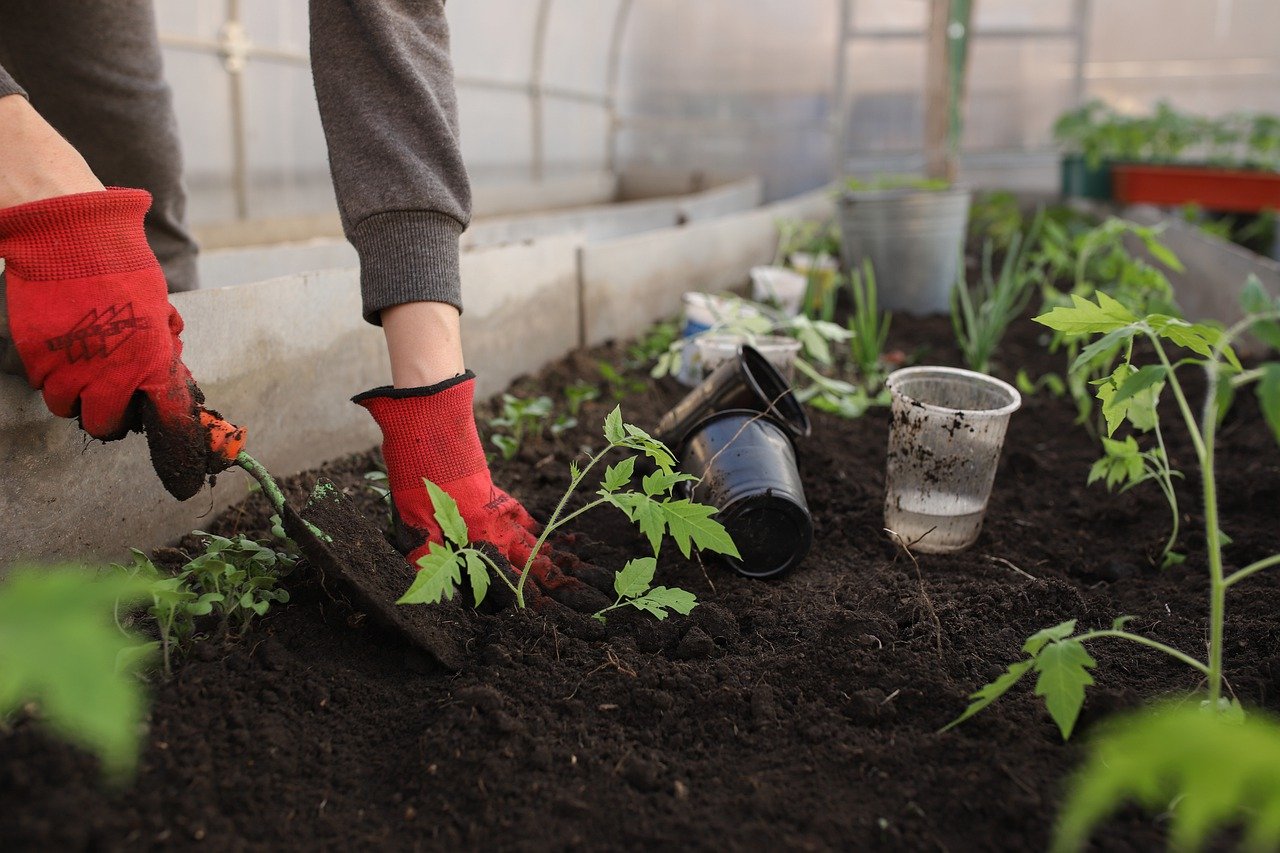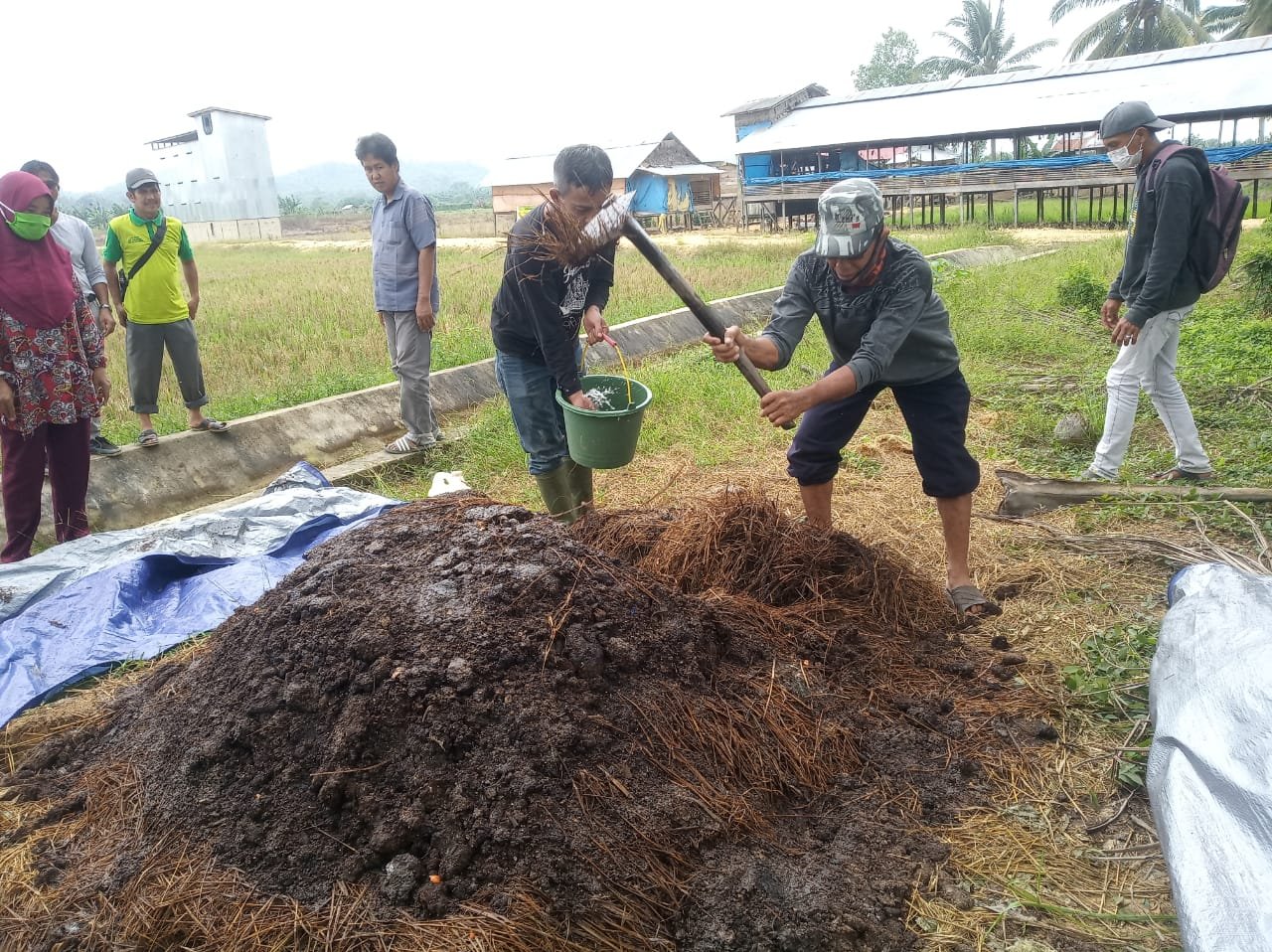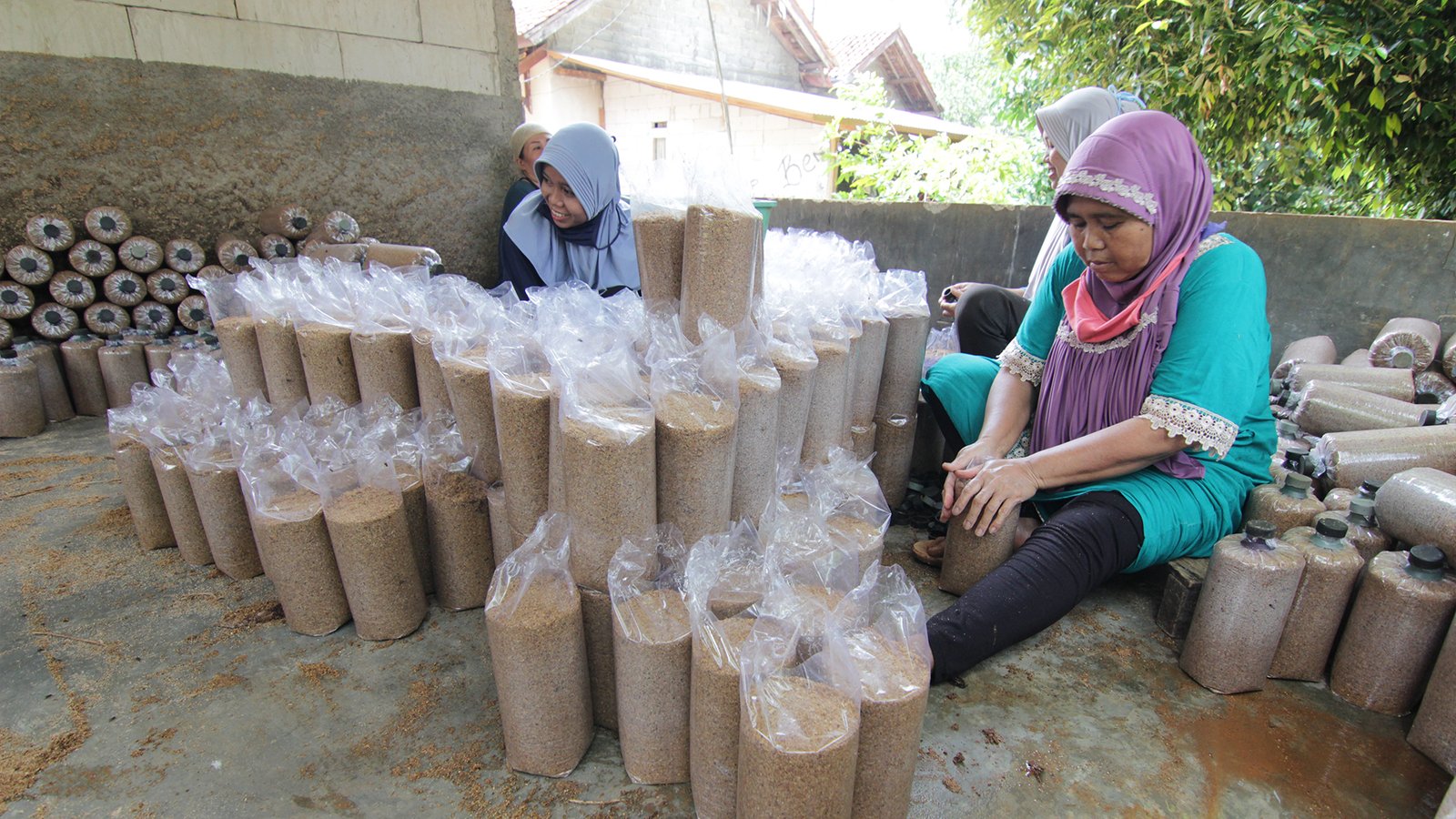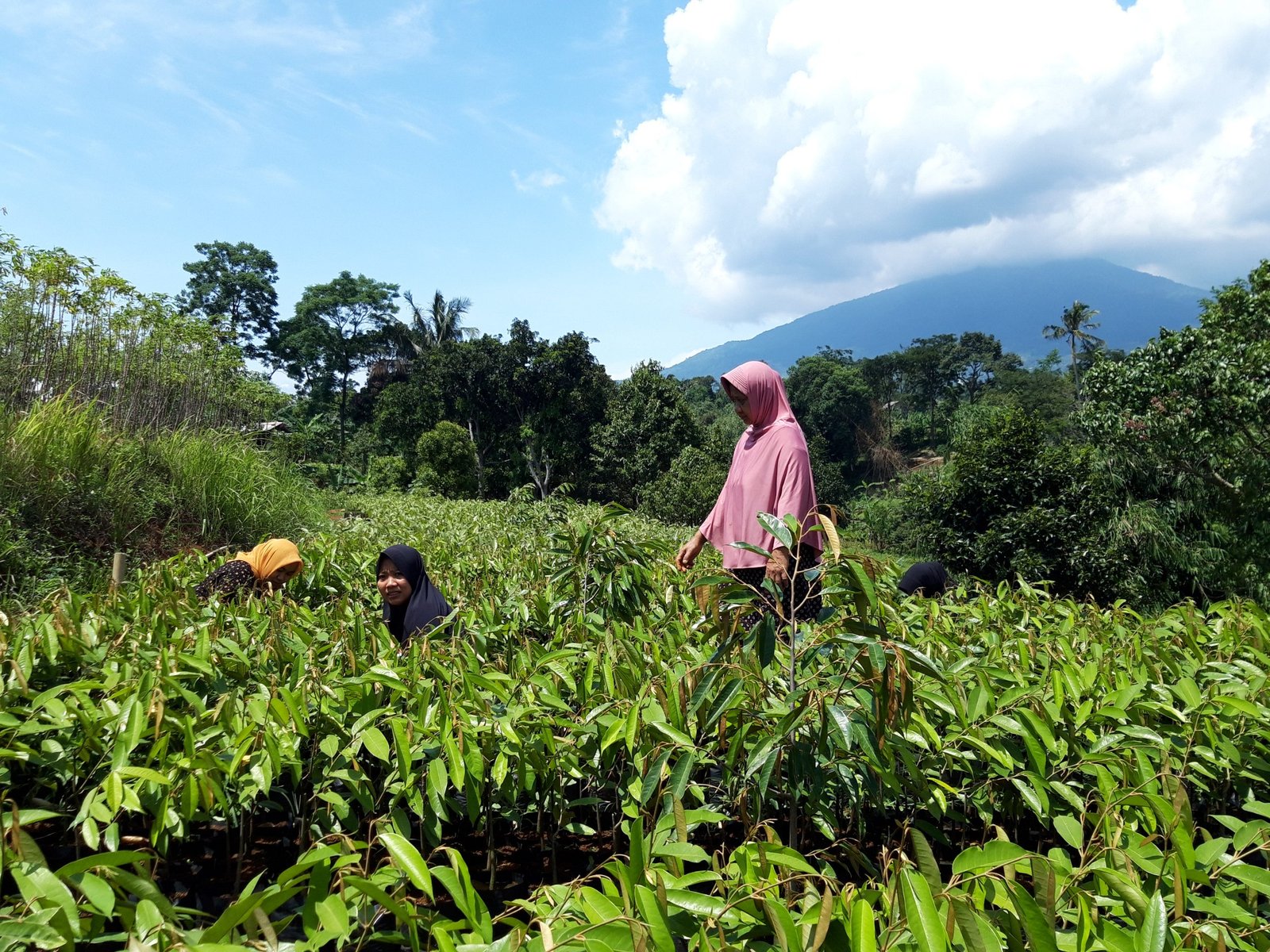The COVID-19 pandemic, which has lasted since early 2020, has had a major impact on the economic performance and social life of the Indonesian people. The Central Statistics Agency (BPS) recorded an economic decline of 2.07% in 2020 compared to the previous year.
Based on data from the Ministry of Cooperatives and MSMEs in 2021, during the pandemic, the Indonesian economy was supported by income from micro, small and medium enterprises (MSMEs) amounting to 60% of Indonesia’s total GDP in 2020. Meanwhile, the rest are recorded from large companies.
Citing data from Katadata Insight Center (KIC), as many as 82.9% of MSMEs were affected during the COVID-19 pandemic. Studies on the impact of the pandemic on MSMEs by several institutions, namely the Central Statistics Agency, Bappenas, and the World Bank show that the pandemic has caused many MSMEs to have difficulty paying off loans and paying operational bills and employee salaries, difficulty obtaining raw materials, capital, decreasing the number of customers, distribution and production hampered.
One of the causes is the decrease in consumption and expenditure of the Indonesian people by minus 1.5% to minus 3%. In addition, the restrictions on public mobility set have caused public spending activities, especially in distribution channels or traditional supply chains, to also decrease. In line with the problems faced by MSMEs, Asian Development Bank (ADB) survey data shows that 34 million MSMEs, or more than 50% are forced to close their businesses permanently or temporarily.
Women dominate the micro and MSME business sector in Indonesia
Data from the Ministry of Cooperatives and Small and Medium Enterprises reveals around 65 million MSME units in Indonesia, most of which are run by women. Around 52.9% of micro-enterprises in Indonesia are run by women, for the small business sector, 50.6% are women, and in medium enterprises, 34% are also run by women.
Based on these data, it is undeniable that women dominate MSME actors in Indonesia. This means that women have a very large role in Indonesia’s economic recovery through the revival of MSMEs. However, the declining COVID-19 cases should be momentum for economic recovery by maximizing the role of women through the MSME sector.
However, several studies have highlighted that the impact of the pandemic is greater on women than on men. This is because women bear a greater burden of domestic work during the pandemic, such as teaching schoolchildren, household chores, and their jobs. As a result, 25 percent of working women considered quitting their jobs or slowing down their careers during the pandemic.
In addition, women in the informal sector also bear more risks when working during the pandemic because workers in the informal sector also do not get health protection, labor law, and social benefits as workers in the formal sector.
Due to the large number of women working in the informal sector, the discussion of the economic impact of the pandemic on MSMEs and the informal sector cannot be separated from the discussion of social problems experienced by women as support for the informal sector in Indonesia.
Seeing the large role of MSMEs and the informal sector in supporting the economy and women’s involvement in these sectors, a deep understanding of the impact of the pandemic on these two groups is needed: MSMEs and women in the informal sector, as well as their strategies in dealing with the pandemic. This is seen as important as a foundation for stakeholders and policymakers to map effective support to help MSMEs and women in the informal sector to survive during the pandemic.
MSME and women’s informal sector preparedness strategies
Dr. Widya Paramita from the Faculty of Economics and Business, Universitas Gadjah Mada (UGM), in research that became the basis for the preparation of the Roadmap and Strategy for MSME and Women’s Preparedness in the Informal Sector in facing the crisis caused by the COVID-19 pandemic, said that it is necessary to identify and classify the problems faced by MSMEs and women in the informal sector during the COVID-19 pandemic.
“There needs to be support for MSMEs and women. The strategy used by MSMEs depends on the type of problem faced and the resources they have. This is because the problems of MSMEs are different and cannot stand alone, but are interrelated with each other,” Widya said in his presentation at the Wisma Hijau-Build Forward Better Talk with the theme “Surviving and Developing: MSMEs and Women in the Informal Sector during the COVID-19 Pandemic”, which was held virtually, Friday (29/10).
Widya further said, based on the research that has been done, he strongly encourages changes towards a more inclusive ecosystem to be able to jointly encourage micro and small businesses to advance and develop.
“The existing policies so far lead to digitalization or providing capital. The problem of MSMEs is not only solved by providing capital and digitalization, but we must look deeper that they have different needs so that the support provided should be adjusted,” said Widya.
Prof. Nurul Indarti, Ph.D., researcher of MSMEs and supply chains, Faculty of Economics & Business, Universitas Gadjah Mada (UGM) on the same occasion said that a BPS survey conducted before the COVID-19 pandemic illustrates that the condition of MSMEs in Indonesia amounting to 98.68% of businesses in Indonesia is dominated by Micro, Small and Medium Enterprises.

According to him, this situation is not surprising if 93.45% of MSMEs are not business entities. As many as 93.78% of MSMEs do not use computers in their business and 90.24% of MSMEs do not use the internet.
“With this situation, it is not surprising that the majority of MSMEs do not have a business entity. Then the majority of MSMEs do not use computers and the internet in running their businesses. They also did not join hands to establish a partnership. They only rely on their ability to survive and develop,” he explained.
Departing from the results of the survey conducted, Nurul identified and conducted in-depth interviews with several MSME players whose sales were stable and increasing. Some MSMEs are managed by women with less education than higher education, and their turnover has not grown during this pandemic. On the other hand, for MSME players with university education, their turnover is stable and increases during the pandemic.
“MSME players who survive and thrive during the pandemic are those who carry out strategies, one of which is by implementing an integrated business concept that focuses on strengthening human resources and who aggressively optimizes social networks. Integrated MSME players from upstream to downstream who can survive and develop,” he said.
The same thing was also expressed by the Director of Business Incubation ITB, Dina Dellyana. He said that we must think from the ecosystem side which is then adjusted to the needs of each MSME.
“We need to be open to collaboration because everything can’t be run alone. Collaboration is key even though it is not an easy thing, but we have to think that the ecosystem we build can be sustainable. The last one is consistency. Consistency is something we must pay attention to,” Dina said.
Go Digital

Direktur Inkubasi Bisnis ITB, Dina Dellyana
The COVID-19 pandemic situation for the business world, including MSMEs, is faced with the challenge of accelerating digitalization. In her presentation, Dina said that the pandemic brought changes in people’s lifestyles by transacting more online.
“Fashion MSME friends, for example, during the COVID-19 pandemic, their income increased. This means that business agility is one of the important points in how they can survive or not during a pandemic. So this condition requires MSMEs to be able to adapt and transform towards digitalization,” Dina said in her presentation.
At the beginning of the COVID-19 pandemic, Business Incubation, at ITB School of Business and Management conducted research on the impact of COVID-19 on the business value chain. He distributed questionnaires to 3,000 MSME actors. The results show that in the business value chain, the COVID-19 disaster has the most influence on decreasing demand, followed by production problems.
To Go Digital for MSME players aged 30 years and over, Business Incubation also opened a coaching clinic service for free. In running it, Business Incubation empowers final-year students to receive consultations and provide assistance to MSME actors.
According to him, there are several causes of MSMEs not developing, including low human and managerial capacity, low technological capabilities, no proper business planning to not having a business development strategy. MSMEs should be able to connect with the digital ecosystem to reach a wider market. With this Business Incubation, it is hoped that women MSME actors can quickly respond to changes in business models so that managed MSMEs can move up in class.
“When we conduct coaching clinics for elderly participants, we suggest involving their children as a young generation, as technology readiness, so that they can improve their business performance in the future. The programs we do, it is important for us to group them to know where their leveling is so that in the process it cannot be generalized,” Dina concluded. (Astri)






